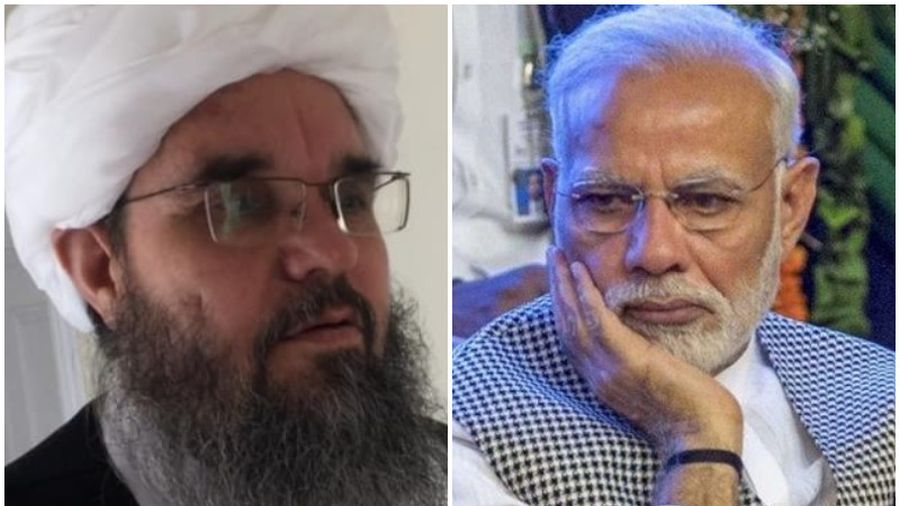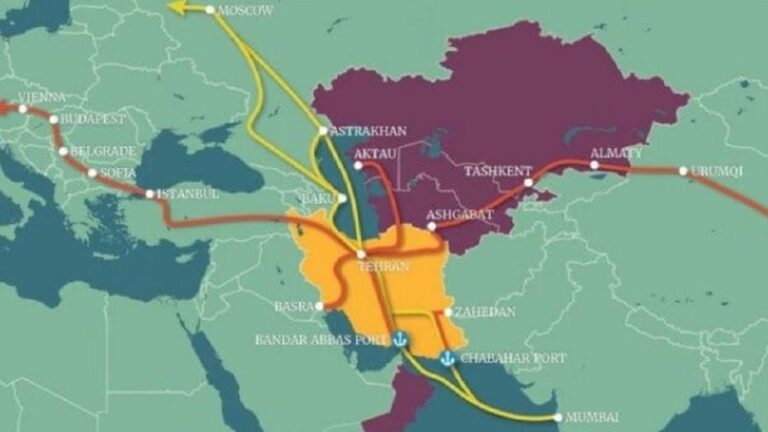The Taliban Isn’t Anti-Indian, It’s India That’s Anti-Taliban, and That’s The Problem
If Russia can get India to realize that the Taliban aren’t a security threat nor are they “Pakistani proxies”, then it can very easily help the two connect with one another by making use of its close ties to each.
India has abruptly been left with no influence whatsoever in Afghanistan ever since the Taliban’s lightning-fast takeover of the country prompted it to evacuate all of its diplomats. New Delhi refuses to publicly hold talks with the Taliban, which it and many other countries like Russia still regard as a terrorist group, thus making it ineligible to participate in the Extended Troika. The South Asian state invested over $3 billion in development projects over the past two decades so it certainly has an interest in restoring its influence in Afghanistan, but this will require it to pragmatically engage the Taliban just like Russia’s been doing, though New Delhi has thus far declined to do so.
The official reason is that the Taliban are terrorists, but this hasn’t stopped other countries such as China and even the US from interacting with it, especially after they became Afghanistan’s de facto leaders. Unofficially, India’s ruling Hindu nationalist government might fear the optics of talking to an Islamist movement. Not only could this dent its soft power appeal at home, but some might fear that it’ll inspire other Islamist movements elsewhere in the country such as in Jammu & Kashmir. Be that as it may, India already has its portion of that disputed territory almost entirely under its control despite some foreign concerns about the locals’ human rights allegedly being violated as a result so it doesn’t really have much to fear from talking to the Taliban.
The prerogative is entirely on India’s side for restoring bilateral relations with Taliban-led Afghanistan since that group isn’t anti-Indian, but it’s India that’s anti-Taliban. The Taliban doesn’t have any foreign expansionist intentions, nor does it plan to host any foreign terrorist organizations as part of its February 2020 peace deal with the US. In fact, one of its spokesmen even said that they aspire to have positive relations with all countries, including India. The problem, however, is that India doesn’t want to have positive relations with Taliban-led Afghanistan. This is seen most clearly by Prime Minister Modi provocatively describing them as an “empire of terror”, to which the Taliban responded by promising that the world will soon see how “smoothly” it’ll govern.
India will therefore have to change its position towards the Taliban if it wants to regain its lost influence in Afghanistan, but this might require a third party’s diplomatic intervention in order to inspire such a policy recalibration. Russia is India’s special and privileged strategic partner and always has the South Asian state’s best interests in mind. The Eurasian Great Power recently came to be seen as the country with the most influence over the Taliban apart from Pakistan and can prospectively leverage its newfound influence in Afghanistan for the purpose of facilitating an Indian-Taliban rapprochement upon New Delhi’s request. Moscow of course respects its partner’s right to not talk to the Taliban, but it might feel that it’s counterproductive.
To explain, Russia doesn’t want India to lose out on reconstructing Afghanistan, especially since it already invested over $3 billion there. Not only that, but Moscow’s 21st century grand strategy is to become the supreme balancing force in Afro-Eurasia, which in turn requires it to manage a so-called “balance of influence” in post-war Afghanistan. The best-case scenario from the Kremlin’s perspective is that India’s potential return to Afghanistan can balance out Chinese and Pakistani influence there. That’s not to say that there’s anything negative about those two countries’ influence in post-war Afghanistan, but just that Russia always prefers to “gently” balance anyone’s influence anywhere in order to avoid any potentially disproportionate dependence.
If Russia is to stand any chance of success in getting India to pragmatically recalibrate its position towards the Taliban, then it’ll first have to convince it that the group doesn’t pose any threat to its interests. The recent phone call between President Putin and Prime Minister Modi and their subsequent decision to establish a two-way channel for permanent consultations on Afghanistan is a positive step in that direction. Since India lost all of its influence in Afghanistan, it’s now completely dependent on Russia to figure out what’s happening there. Hopefully Moscow can get New Delhi to see that the modern-day iteration of the Taliban has tremendously changed from its prior manifestation during the 1990s that still haunts so many Indian strategists.
In the event that Russia can score some success on this “perception management” front (which is as simple as sharing the truth about the Taliban enough that India finally realizes that its views of that movement are outdated), it’ll then have to convince its partner that the Taliban aren’t so-called “Pakistani proxies”. Although India’s rival has cultivated extremely close ties with the group over the decades, the Taliban have already shown that they’re far from being under Islamabad’s thumb. This is evidenced by it shutting down a major border crossing earlier this month that they seized control of and later releasing imprisoned members of the so-called “Pakistani Taliban” (TTP), which is regarded by Islamabad as a terrorist group.
Although the Afghan Taliban (thenceforth simply the Taliban) promised that the TTP nor any other group will be allowed to use their country’s soil to harm anyone else, this still understandably raised serious concern in Pakistan about the Taliban’s intentions. At the very least, this shows that the group doesn’t take its orders from Islamabad, which should reassure Indian strategists that they don’t have anything to fear by pragmatically engaging with it. In fact, such outreaches would further cement the reality that the Taliban are truly independent if they’d publicly enter into talks with India since the perception is that Pakistan wouldn’t approve of them doing so if it actually controlled the group like some wrongly believe.
If Russia can get India to realize that the Taliban aren’t a security threat nor are they “Pakistani proxies”, then it can very easily help the two connect with one another by making use of its close ties to each. Should they agree to enter into public talks and India is able to restore some of its lost influence in Afghanistan, then New Delhi might reward Moscow by proposing joint projects with its companies in that third country. That would be the most mutually beneficial outcome for all and could also set the basis for exploring joint projects in other countries as well such as in Africa and ASEAN where India also has more economic influence than Russia. All that has to happen is for India to recalibrate its stance towards the Taliban, which Russia seeks to help it do.







